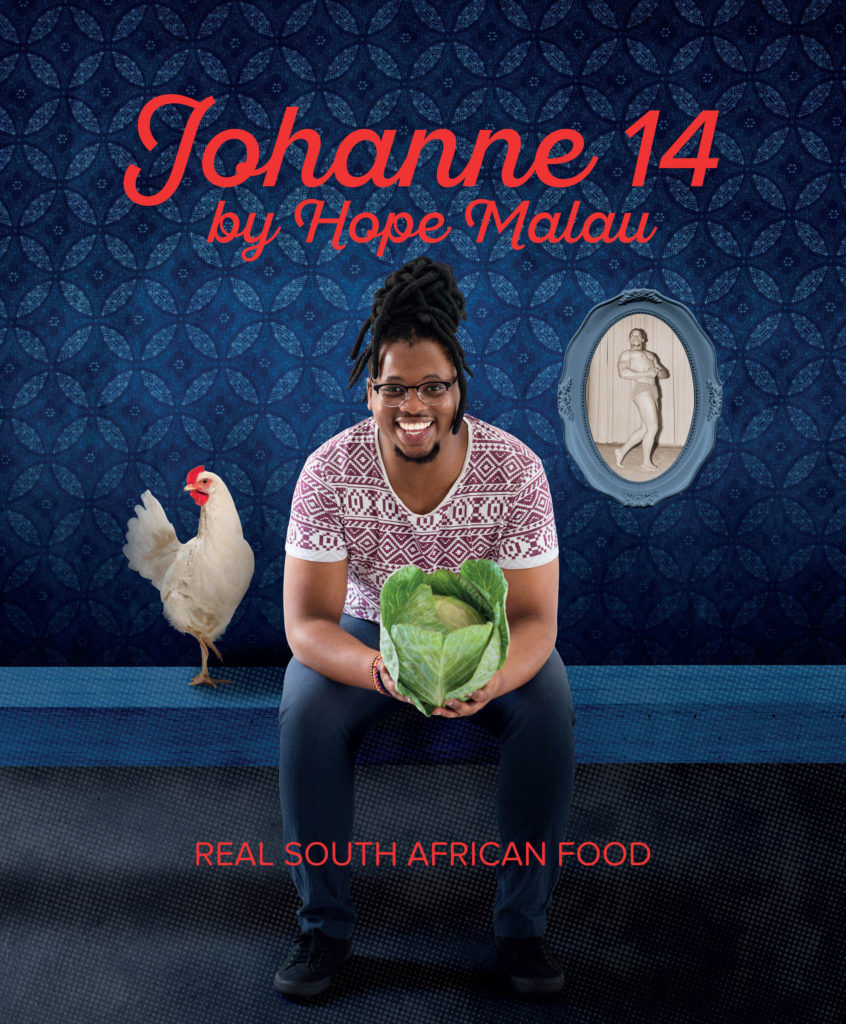Local food icon: Dora Sitole was a pioneer for black chefs in South Africa. (Sarah de Pina/ Gallo Images / Sunday Times)
When South African food icon Dorah Sitole published Cooking from Cape to Cairo: A Taste of Africa in 1999, she was excited to be a pioneer for black chefs in South Africa. She did not expect to be one of the only ones for years to come.
Sitole shared this experience at the inaugural South African People of Colour at the Table Conference in 2019.
With the boom in black-authored cookbooks in the past few years, the culinary landscape has started to shift and there is a growing national consciousness and pride in how people relate to their cultural foods. These books have added heart, style and profound meaning to local cookery stands and have challenged the limits of what a cookbook can be. Their success illustrates the hunger people have for books that are relatable and representative.
 Johanne 14 (Quiver Tree publications)
Johanne 14 (Quiver Tree publications)Hope Malau’s Johanne 14 is made up of extensive recipes compiled as a love letter to his father, Elias Mokoena. The first few pages give a brief glimpse into Mokoena’s life story, with a career in professional bodybuilding and winning competitions like Mr Klerksdorp. He later came to be in charge of the kitchen of a mining hostel, where he honed his cooking skills with the aim of maintaining his physique. In the process, he became loved for his tasty creations.
Malau’s memories of eating warm and comforting meals cooked by his father ignited his own passion for cooking, and his journey began when he visited his father at work and was taken under the chef’s wing.
The name of the book, Johanne 14, comes from the Bible verse John 14:1. “Let not your hearts be weary…” Popular among congregants of the Zion Christian Church, the verse has also come to refer to a versatile vegetable: cabbage.
In his cookbook, Malau writes: “Cabbage is a staple township food, second only to maize meal. A head of cabbage can be cooked in so many ways, it’s inexpensive and goes with anything … Hence it’s become known, affectionately, as Johanne 14. If you have cabbage, you should not let your heart be troubled.”
Malau does not romanticise townships. He calls out their sinister creation under apartheid’s Group Areas Act, when there was a mass dislocation of black South Africans to city outskirts, to underserviced areas and a distance away from employment centres. He does, however, describe the cuisine that came out of that struggle as one of resilience and love. Delicious food was made, often from modest means, with creativity and “power to ease a troubled heart”. From this book, it is clear that township cuisine was and is a resistance.
This is an edited excerpt of an article first published on New Frame